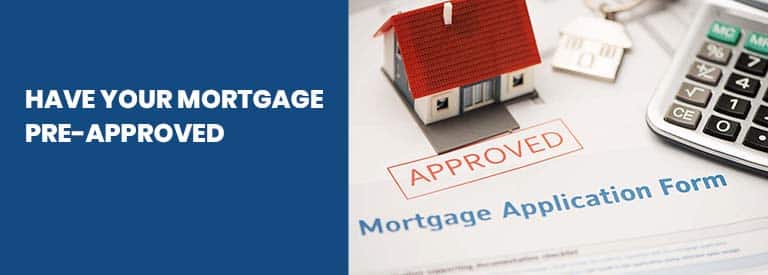It may seem daunting at first, but qualifying for a home mortgage loan in Canada is easier than you might think.
The minimum requirements list can make you lose hope long before the financial advisor even looks at your application. Thankfully, there are many changes you can make to your day-to-day life that’ll help you.
The national and global economies are still trying to recover from the global pandemic. Although it created a buyer’s market for property hunters, it also means lenders are even more selective in handing out credit.
That doesn’t help the average person qualify for a home mortgage loan. Your application needs to be pristine — but we are here to help you make that happen.
Stabilize Your Income
Buying a home is a huge step in any person’s life. You need to plan for it and take the proper steps leading up to your first application. You can start planning for your mortgage application years in advance. Buying a home is a long-term commitment, so your planning leading up to your first offer should be, also.
It’s essential to prove your repayment capabilities. This means the longer you are with one employer, the better your chances are for approval. Yes, a home is a fixed asset, and banks use it as a surety, but they want to prevent any foreclosure as much as you do. If you (and your partner, if applicable) have stable full-time employment, it adds immense value to your application.
Also, the ongoing pandemic has placed a strain on financial institutions, just like it has on individuals, and they want to minimize any additional risk. If you can deliver proof that your full-time employment is secure to see it through the pandemic, it’ll increase your chances further.
People without that kind of stable employment can still apply for a home mortgage loan but expect to pay non-preferential rates that can add thousands more to the cost of your home.
Things get a bit more tricky if you’re self-employed. If that’s the case, you will have to prove that your business is going to stay afloat. If your company has been operating for a couple of years, it gets easier. Either way, you’ll have to deliver a complete set of financials to set the lenders’ minds at ease.
Whichever boat you’re in, it’s a good start to contact Diamond and Diamond for a free consultation to help you better prepare for your application.
Aim for a Larger Down Payment
The one unchangeable aspect of all mortgage applications is that you need a down payment. It’s a good investment as it’ll decrease your repayment installments and interest paid.
In Canada, the size of the down payment depends on the home’s price:
- Homes costing less than $500,000 will need a down payment amount of at least 5% of the total purchase price.
- Homes costing between $500,000 and $999,999 will cost you 5% for the first $500,000 ($25,000) and then another 10% for the loan balance.
- All residential purchases of more than $1,000,000 require a 20% down payment.
According to the applicable Canadian laws, you’ll also need to buy mortgage loan insurance if you make a down payment of less than 20%. Such premiums are added to your monthly installments and can increase it drastically.
In all cases, it has been proven that your best investment for the long run is to make a down payment of at least 20%. We know it’s not always possible, especially with residential prices in the major cities like Vancouver and Toronto, but you should definitely try, if possible.
You can use our mortgage calculator to establish repayment values by adjusting the down payment amount quickly, and you’ll also find a step-by-step guide of your purchase transaction to help you prepare.
Check Your Credit Score
Your credit score is a representation of how well you have been able to manage debt. All lenders use it to determine your trustworthiness to repay your mortgage. The higher your score, the lower your interest rate. You can find a simple guide here to help you understand all these complex processes.
It’s never advisable to go into the application process without knowing your credit score. Canadian credit scores range from 300 to 900. The average to get a mortgage loan is 660, and the higher, the better. You can still apply and be approved if you have a lower score, but it’ll drastically influence your payback rates.
There are multiple agencies, such as Equifax or TransUnion, that can supply your credit score, so you know where you stand. If your score is meager, it could be better to hold off on purchasing a home until you get your score up. In the long run, it could save you thousands.
|
What you need for a Home Mortgage Loan |
|
|
Requirements for a Home Mortgage Loan |
|
|
Home Mortgage Loan Filing Process |
|
|
Home Mortgage Loan Fees |
|
Navigating home mortgage loans can be tricky. Consult with a real estate lawyer from Diamond & Diamond Law today.

Did you know?
“As you prepare to become a future homeowner, the first step in priming your credit is knowing what yours looks like.”
– Diamond & Diamond











 It gives you an excellent advantage if you know you’re approved beforehand and how much you can spend on a new home. You’ll have to negotiate power with the
It gives you an excellent advantage if you know you’re approved beforehand and how much you can spend on a new home. You’ll have to negotiate power with the 


